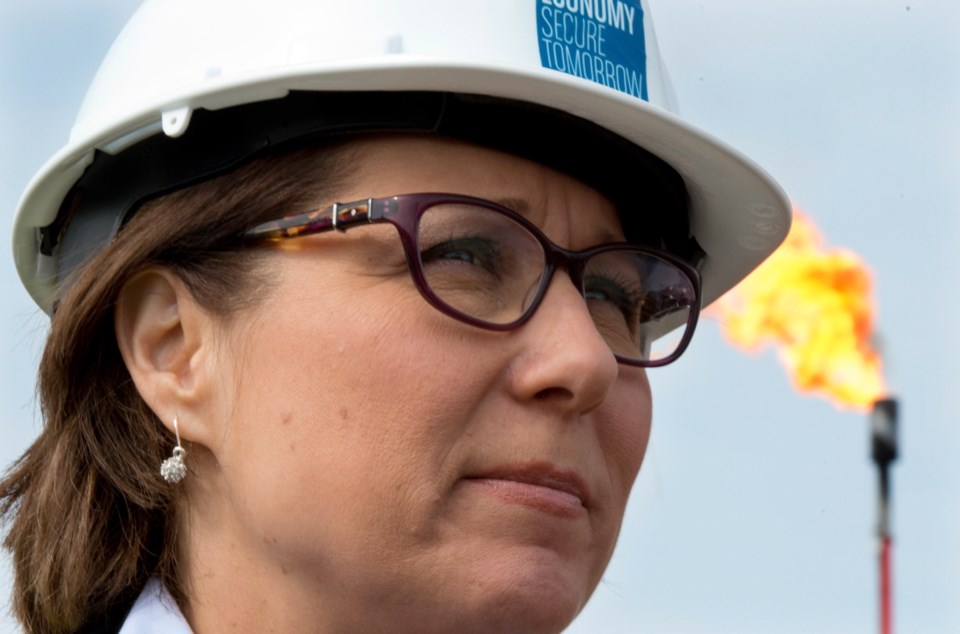Whether you wanted change or not, you’re getting it — and British Columbia is going to be much different in four years than it would have been under a renewed B.C. Liberal mandate.
Will the Kinder Morgan pipeline expansion go ahead? The Site C dam? The Massey Tunnel replacement? Will we see electoral reform? Will the carbon tax increase? Will Medical Services Plan premiums be eliminated? Will the minimum wage rise to $15 an hour? Will union and corporate political donations be banned? Will B.C. have a poverty-reduction strategy?
All of these things are possible as NDP Leader John Horgan gears up to become premier with the thinnest possible mandate.
But this we do know: The Greens and the New Democrats have wish lists that will cost us all a lot of money.
On Tuesday, Horgan and Green Party Leader Andrew Weaver released the text of the agreement under which the Greens will support an NDP government for the next four years. The program includes a long list of policy initiatives that will have the B.C. Liberals and the B.C. Chamber of Commerce cringing or rushing to the barricades. No wonder the Liberals couldn’t sign a deal with the Green Party.
The agreement calls for a strong partnership. The Greens would be briefed on legislation and important developments so they know what is coming up. They get a commitment that the NDP will spring “no surprises.”
The Greens didn’t get all they wanted. They get a commitment to electoral reform, but the agreement says it will come only after a referendum. The Greens had wanted to institute proportional representation by legislation, without a referendum. The form of PR is still to be determined.
The Greens also gave up another of their treasured principles. Before they even had a chance to exercise their right to free votes in the legislature, they have surrendered it. The agreement says: “Both caucuses recognize that, in order to promote greater stability, the government must be able to negotiate with the three B.C. Green Party MLAs as a single, recognized caucus.”
They have agreed to a list of changes that are likely to come with hefty pricetags: Introducing a prescription-drug program, expanding mental-health and addiction services, improving access to child care, hiring more social workers, improving public transit, starting a basic-income pilot project.
Most of these are likely to find widespread approval in urban areas, but where will the money come from?
The NDP and Greens must recognize the pronounced rural-urban split. People in the Interior and the North have reason to believe they will be voiceless in the new government, at a time when their livelihoods are at risk.
As premier, Horgan must be careful not to govern for Vancouver at the expense of Fort St. John, and much of this agreement seems more tailored to urbanites than those outside the Lower Mainland and the Island.
Horgan said Tuesday that he hopes his party will form a new government “in a few short days.” His enthusiasm is understandable, but he needs to take a deep breath.
He can dole out cabinet posts, but it’s all just an academic exercise until Lt.-Gov. Judith Guichon invites him to form a government. Premier Christy Clark said Tuesday that she isn’t going to step aside. Instead, she will recall the legislature and “test the confidence of the house.” In other words, if Horgan and Weaver want her out, they will have to vote her out.
That’s a task the NDP and Greens no doubt will take on with enthusiasm, but until they do, the B.C. Liberals are the government of this province.
Technically, Clark does not have to recall the legislature until near the end of September. The last money-supply bill runs out on Sept. 30, so she and her party can continue to steer the ship without input from the other parties as long as the money holds out.
However, she has chosen not to delay the inevitable. She said she would recall the house before the end of June. Fighter though she is, Clark knows that with the NDP-Green arrangement in place, it would be wrong to hang on in defiance of reality. It would be an anti-democratic stick that the other parties would use to cudgel the Liberals in the next election.
Clark also said she would not ask Guichon to call another election, although she has the right to do so. The premier said she would leave that decision up to the Queen’s representative, knowing that it would be almost inconceivable for the lieutenant-governor to call a vote when Horgan is standing ready to govern.
Clark indulged in some dramatic insincerity, saying: “What’s most important is this basic principle that if there is going to be a transfer of power in this province — and it certainly seems like there will be — it shouldn’t be done behind closed doors. It should happen in public, as constitutional convention tells us it should.”
A short time later, however, she said that she insisted the recent negotiations between her party and the Greens be conducted behind closed doors, rather than in public. In other words, the formalities of power should take place in public, but the unpleasant work of sausage-making should still be done out of sight, as politicians prefer.
Horgan and Weaver promised change, and it is clear they are eager to deliver it. They have already made history with their agreement to work together, and it is possible that politics in British Columbia will never be the same.



